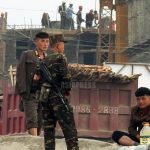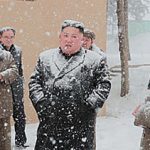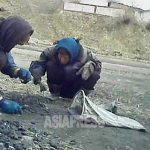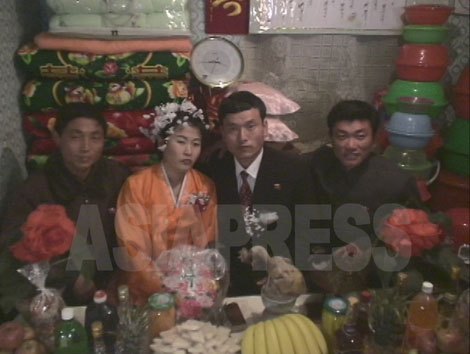
North Korean women are delaying marriage and avoiding childbirth. The bottom line is that the disadvantages of marriage and childbirth for women have only gotten worse with recent developments in North Korea. ASIAPRESS spoke to three of its reporting partners in the northern part of the country to find out more. (JEON Sung-jun / KANG Jiwon)
◆ Women avoid marriage to protect their livelihoods and to protect themselves
Why do North Korean women choose not to marry? The main reason is that marriage is a huge burden on women.
The near-collapse of the food rationing system in the 1990s led to an abnormal economic structure in which women have become expected to support their families through commercial activities. While this has improved women's economic status, it has also increased the burdens placed on them. In addition to household chores and childcare, they have to earn money to feed their families.
Moreover, North Korean women don't want to have to live with men who just sit at home, unable to do anything about their situation because they are tied to jobs provided by the government.
"(The reason for not marrying) is mostly because they are worried about their livelihoods, and usually the men are not capable (of earning money), so (the women) have to provide for them. Pretty girls will marry men who have everything, but they will not marry men who have nothing." (Reporting Partner "A")
North Korea's legal system, which makes it difficult to get a divorce once married, also contributes to women's reluctance to marry, the reporting partners said. Weddings are perceived as something only those with money can afford, and many ordinary workers who can't afford a wedding are choosing to simply register their marriage without a ceremony.
"We did have a wedding, but it was just a gathering of acquaintances and relatives. We did it so quietly that we almost got sent to a forced labor camp... We got married in December last year (2023) and are living together, but we were the focus of attention during an inspection (the authorities suspected we were living together when we were not a couple)."
※ Forced labor camps are where people accused of light crimes or disturbing social order are detained for up to a year. The camps are managed by North Korea’s national police agency.
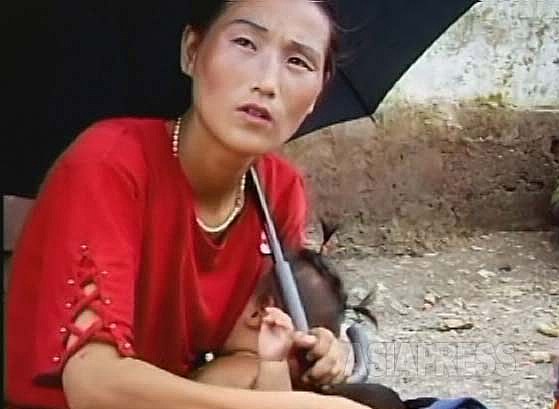
◆ Childbirth creates intolerable burdens for women
Even if a woman is married, the decision to have a child is not an easy one.
"The man is not able to provide for the family, so the woman has to earn (money)," said Reporting Partner “A.” In this situation, having a child is a serious blow to the family's finances."
In other words, for North Korean women, childbirth is a matter of survival for their families; the cost of childbirth is too high.
The rising cost of childcare also contributes to women's avoidance of childbirth. The reporting partner said that even if they want to send their children to school, the burden of paying for everything from gloves to underwear to woolen shawls for the Korean People's Army and various construction projects is so severe that parents refuse to send them.
"Nowadays, it's hard to send them (to school) if you don't have money. Even in January, the school collected 30,000 won per student for firewood. They're asking people to bring firewood - not money, but it's like money. Schools usually demand around 20,000 to 50,000 won per month." (Reporting Partner “B”)
※ As of late March 2024, one kilogram of white rice was 6,500 North Korean won. 1,000 North Korean won equals around 153 South Korean won.
◆ Some men still want children, but women use contraception in secret
North Korean men have yet to catch on to these changes. They have no awareness of contraception or abortion, and patriarchal attitudes such as shouting at their wives remain widespread, according to the reporting partners.
The reporting partner in Ryanggang Province responded to a question about the responsibility men feel when it comes to contraception, abortion, and childcare by saying:
"Men here still don't know about that... Most men don't care if a woman has an abortion or faces other issues... There's no such thing as taking care of a woman... Men in households where they [can’t] earn money and put food on the table are scarier than tigers." (Reporting Partner “B”)
The reporting partner said that men still have no sense of responsibility for contraception or abortion and tend to think of it as a woman's responsibility.
"There are still men who don't have sense or thinking and (continue to get their wives pregnant) to get a son, but women put (contraceptive) rings on without their husbands' knowledge to avoid pregnancy." (Reporting Partner “A”)
※ Contraceptive rings/birth control vaginal rings: a form of contraception commonly used by North Korean women.
The patriarchal reality of North Korea - where the state, society, and men fail to empathize with women's burdens of childbearing and parenting - is a critical factor in understanding the country's declining birthrate.
So, how are the authorities responding to this serious decline in the birthrate? Find out in the next installment.
(To be continued in the next installment)
